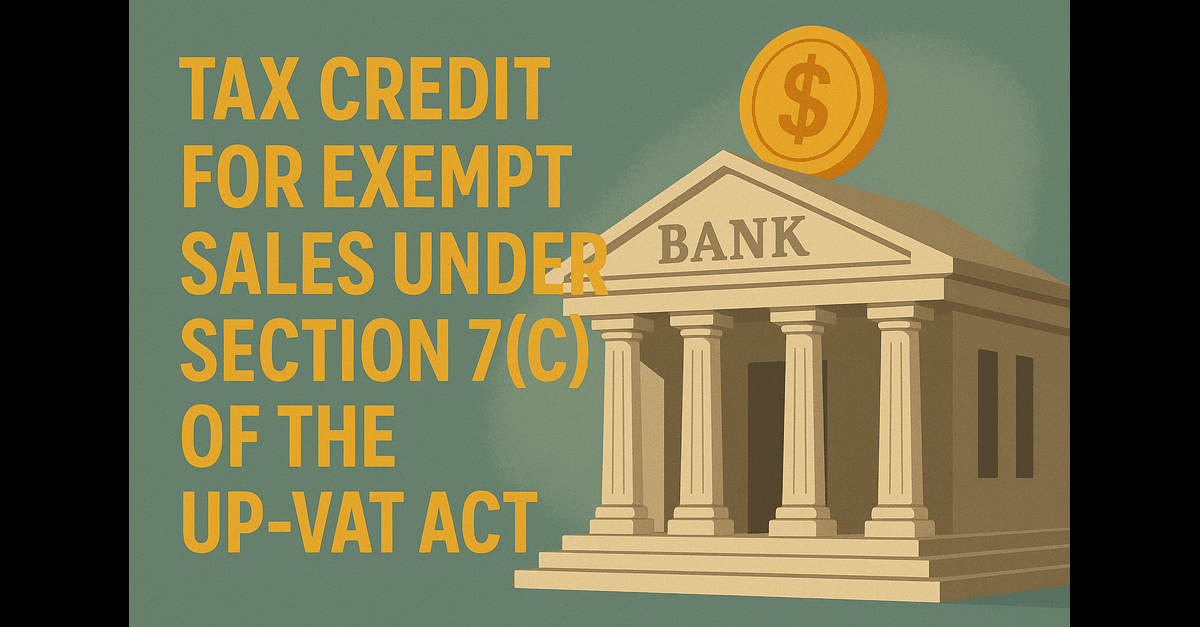Case Name: NEHA ENTERPRISES vs COMMISSIONER, COMMERCIAL TAX, LUCKNOW, UTTAR PRADESH
Case Number: CIVIL APPEAL NO. 6553 OF 2016
Date: April 16, 2025.
Quorum: HON’BLE MR. JUSTICE PANKAJ MITHAL, HON’BLE MR. JUSTICE S.V.N. BHATTI
FACTS OF THE CASE
The appellant in this case is a registered dealer under the Uttar Pradesh Value added tax 2008.This appeal relates to the turnover return which is filed by the dealer (appellant) for the assessment year 2010-11. The dealer recorded sales against the issuance of a Form-E to the manufacturer exporter, which amount to Rs. 1,89,35,000 /- The dealer at this instance claimed an input tax credit amounting to a sum of Rs. 6,42,260/-. The assessing officer in this dispute, at the first instance, allowed input tax to the extent of Rs. 6,42,260/-. Subsequently, the assessing officer via order dated 22.02.2013 made under section 28 of the Act disallowed the claim of an input tax credit of Rs. 6,42,260/-. The assessing officer in the said assessment order, which was passed under section 28 of the Act, put the dealer on notice to hold that the dealer is not entitled to input tax credit for the purchase tax paid by him on the sales turnover which is made in favor of the manufacturer. The dealer explained that his claim for the input tax falls under the scope of section – 13(1) of the Act. Even though the turnover falls under the section 7(c) of the act, the exception in section 13(7) does not apply. The assessing officer at the later stage observed that the sales made using Form – E was accepted by the department.
ISSUES
- Whether the claim of the input tax credit by the dealer for the amount of Rs. 6,42,260 is legitimate and is falling under the ambit of section 13(1) of the Act?
- Whether the disallowance of the input tax credit by the assessing officer is violating the provisions of the act?
LEGAL PROVISIONS
- Section- 13(1) – Provides for the allowance of the credit of an amount as input tax credit.
2. Section – 13(7) – Proviso which stipulates that a transaction covered by section 7(c) of the Act is not entitled to input tax credit.
-
Section – 7(c) – provides that “The sale or purchase of certain goods, or sale or purchase made by certain type of dealers can be regulated as decided and announced by the state government in a special notification”.
ARGUMENTS
APPELLANT CONTENTION:
-
- Prima facie illegality of the denial of the input tax credit
- Context of the section 7(c) notification: The notification issued under the relevancy of this act must be analysed with the policy objectives. As it aims to promote encourage to manufacturer-exporter in the state.
- Contradiction in policy implementation:
- Improper appreciation by the authorities
RESPONDENT CONTENTION:
- The dealer’s case falls under the section – 7(c) and relevant notifications, with a turnover of Rs 1.89,35,000/-.
- As per section 13(7), input tax credit is barred. tax statutes must be interpreted strictly by their wording, not intent.
- Since there is no ambiguity, and the lower courts’ findings are sound, no interference is warranted under Article 136 of the constitution.
ANALYSIS
The Supreme Court considered and analyzed that the dealer sold goods to the manufacturer – exporter without charging tax, based on a government notification under Section 7(c) of the UP-VAT Act, 2008. However, the dealer also claimed input tax credit on the purchase related to these sales. Authorities denied this credit, stating that section – 13(7) clearly prohibits input tax credit on tax exempt sales under the section – 7(c). The appeals made by the dealer were rejected as it was not falling under the scope of this act and law does not for it. The court later interpreted the facts thoroughly and disposed of the appeal.
JUDGEMENT
The Supreme Court determined that the dealer’s argument, based on section 13(1) and the policy intent of the State government, sought to claim input tax credit despite the exemption under section – 7(c). However, the court held that section 13(7) clearly prohibits input tax credit on goods whose sale is exempt under section – 7 (c). Since the exemption is not disputed and the statutory bar under section – 13(7) is explicit, the court found no basis to override the provisions which were based on the policy considerations. accordingly, this civil appeal was dismissed with no further order costs.
CONCLUSION
The Supreme Court’s ruling in NEHA ENTERPRISES v. COMMISSIONER, COMMERCIAL TAX clarifies that when a dealer opts to utilize an exemption under Section 7(c) of the Uttar Pradesh Value Added Tax Act, 2008, they simultaneously become subject to the prohibition contained in Section 13(7). As the Court reiterated, the language of the Act disallows ITC claims for exempt transactions, despite any arguments regarding policy or economic incentives for exporters.
This Judgment stands as a cautionary precedent for dealers to scrutinize the balancing act between exemptions and input tax credits. If certain sales are exempt, one cannot assume that input taxes will be refundable or creditable. Going forward, businesses and legal practitioners must navigate this interplay carefully, adhering to the Supreme Court’s emphasis on the strict interpretation of exemption provisions. Ultimately, the decision reinforces the principle that where the law explicitly bars a credit, no policy or intent can override the statutory text.
“PRIME LEGAL is a full-service law firm that has won a National Award and has more than 20 years of experience in an array of sectors and practice areas. Prime legal falls into the category of best law firm, best lawyer, best family lawyer, best divorce lawyer, best divorce law firm, best criminal lawyer, best criminal law firm, best consumer lawyer, best civil lawyer.”
WRITTEN BY PALAK CHAUHAN


